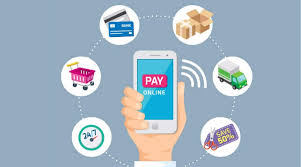Payment gateway security measures you should know
In a world full of digital possibilities, online payment processors act as the ecosystem that facilitates the smooth functioning of a business. COVID-19 has been the hot-pot for all e-commerce to bloom like never before. While the entire digital payment landscape was getting refined, the world also witnessed a rise in fraudulent activities on these payment sites that hampered people's trust in taking their day-to-day payment practices on the online platform.
But as we say, there’s a solution to every problem!
As technology advances, so do the tactics employed by cybercriminals to defraud merchants and customers. To counter these threats, payment gateways implemented robust security measures to protect sensitive data and ensure compliance with industry standards.
In this blog, we will explore the top seven security measures that every payment gateway should have to safeguard transactions and maintain the trust of its users.
PCI DSS Compliance:
Payment Card Industry Data Security Standard (PCI DSS) compliance is crucial for businesses processing credit and debit card transactions. Adhering to these standards ensures a secure transaction environment and protects against card theft and fraud. It is essential for any business that accepts online payments to understand and comply with PCI DSS standards when selecting a payment partner.
Data Encryption:
Encryption is a fundamental security measure employed by payment gateways to protect transaction data. When customers enter their card details at checkout, the payment gateway encrypts the data, transforming it into a coded form that can only be decrypted using a secret key. Encryption significantly reduces the risk of data falling into the wrong hands and provides an additional layer of security.
Secure Socket Layer (SSL):
Secure Sockets Layer (SSL) technology establishes a secure connection between a payment provider and a customer's web browser. All data communicated through SSL is encrypted, ensuring the integrity and confidentiality of information during transmission. Implementing SSL is crucial for websites processing transactions directly or redirecting visitors to a secure checkout page on the payment gateway's domain.
Secure Electronic Transaction (SET):
Secure Electronic Transaction (SET) is a protocol jointly designed by significant card schemes like VISA and Mastercard. SET encrypts payment data, concealing personal details on the card and preventing fraudsters from accessing this information. Additionally, SET ensures that merchants offering payment gateway solutions do not have access to customers' personal data, enhancing security for both parties involved.
Tokenisation:
Tokenisation is a process that converts sensitive cardholder data into a unique security token. This technique involves hashing, encryption, and the use of secret keys. Tokenisation significantly reduces the risk of storing card numbers as tokens are used for future payment requests. By limiting the exposure of sensitive information, tokenisation enhances security and protects against data breaches.
3D Secure 2.0:
3D Secure 2.0 (3DS 2.0) is an authentication protocol that enhances customer authentication in online payments. After customers enter their card details, they receive an additional step to verify their payment with their bank, typically through a password or biometric authentication. 3DS 2.0 provides extra protection against chargebacks and fraud, improving security while facilitating a frictionless payment experience across different channels.
Employee Training:
In addition to implementing technical security measures, ensuring that all employees involved in payment processing are well-informed about the latest regulations and compliance measures is crucial. Regular training and exams should be conducted to keep employees updated on effective payment data handling, protocols to follow in case of a data breach, and how to communicate effectively with customers in such situations.
In summary, protecting payment transactions and sensitive data is a shared responsibility among payment gateways, merchants, and customers. And MOBI- the best payment gateway solutions provider; by implementing comprehensive security measures such as PCI DSS compliance, data encryption, SSL, SET, tokenisation, 3D Secure 2.0, and conducting regular employee training, minimises the risk of fraud and providing a safe environment for transactions.


.jpg)

Comments
Post a Comment